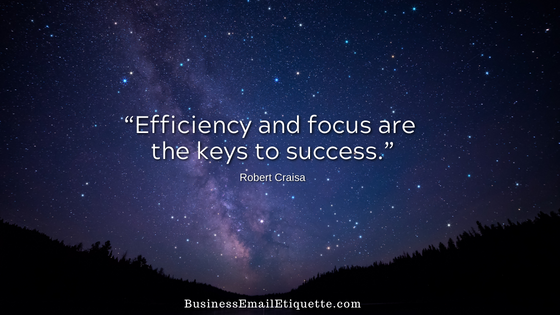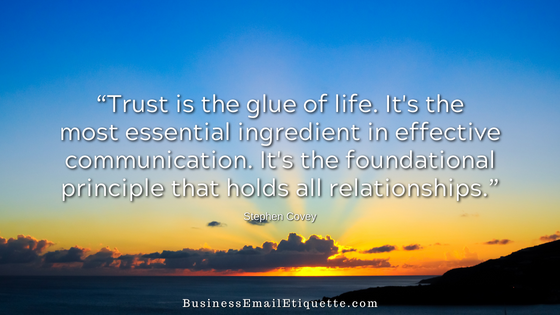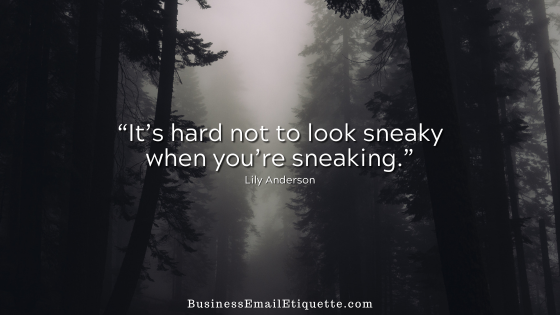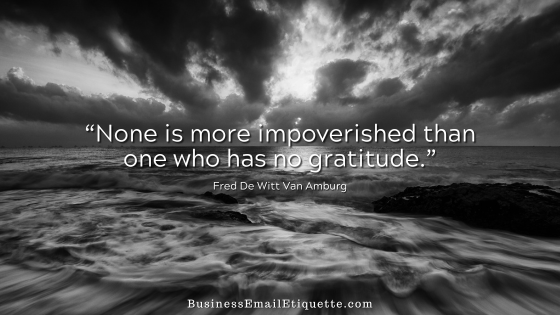Business Email Confidentiality and Trust
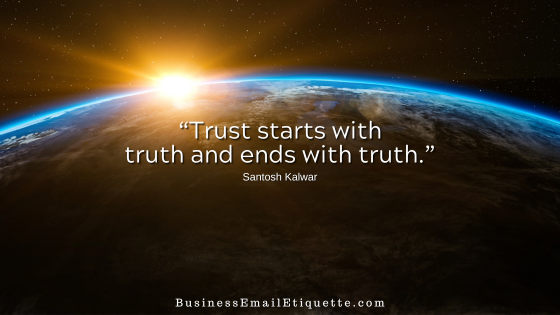
Running a successful business and forming long-term mutually respectful partnerships and relationships depends on trust. Both sides must trust that the other has their best interests front and center. Each needs to know that their relationship is valued.
Compromising Trust
It’s easy for otherwise good folks to unknowingly compromise their relationships and partnerships regarding email, primarily by being lazy. How does that happen?
By forwarding emails sent to you to others for their reaction. Most emails are sent to you in confidence. To forward to others in the guise of “See what they said!?” or “What do you say about this!?” can cause concern and a breach of trust.
Eyes Only
You should assume that every email sent to you is for your eyes only. That is unless the sender specifically states otherwise. “Feel free to share this with those you think will benefit.”
For example, I need to be able to be candid and comment honestly when clients contact me about their programs. It is common for me to be asked my opinion about a previous partner, service provider, or product.
Sometimes, my email reply has been forwarded to the 3rd party I’ve commented on. I am then asked to comment on the response to my comments by that 3rd party.
It would not be a problem if I were made aware that I would be put in this situation. If I find myself in this situation after the fact, at that point, trust has been breached. I then will professionally remove myself from the relationship.
Not because I said anything I regret. Because I don’t remain in relationships where trust becomes a concern.
I am always super cautious to choose my words carefully, be unemotional, and be the epitome of professionalism. I stand behind every email I’ve ever sent because of this approach.
Nor am I kidding myself not to know that emails do get forwarded without my knowledge. And I may never know about it. But when I find out they’ve been forwarded for the wrong reasons?
Trust is Forfeited
If a client asks me questions, I respond professionally and in detail. Based on the facts I am aware of and my decades of experience, I do so with assumed confidentiality. In business relationships, this level of candor and trust is essential.
I have to know I can speak honestly and impartially so that they have the information they need to experience success. This is the only way to have the information necessary to make the most appropriate decision for their business.
Some of you reading this may have experienced similar situations with co-workers. Co-workers who forwarded emails not for legitimate business reasons but to be snarky or gossip.
What do they hope to gain by forwarding emails to uninvolved 3rd parties without your knowledge or permission? These actions often speak more about them than what your email contained.
When forwarding business emails for understandable reasons, a simple “Do you mind if I forward your email to…. for their comment?” I may or may not mind, but that should be my choice, right?
Time and Place for Forwarding
Business emails are forwarded all the time. Some for good reasons — other times for all the wrong reasons.
If you provide information that needs to be known by others in an organization, there are times when it is easier to forward so the info is verbatim. For example, quotes or details about how to do business together require others’ approval or involvement.
The reason for your forwarding is key. You can avoid any loss of trust or concern by not being lazy and just forwarding. Instead, take the information provided and then extrapolate it and pass it on — in your own words.
Avoid pitting two strangers against each other simply because you are too lazy or weak to pose your questions and concerns directly to those involved. Always be upfront about how you will use your or potential partners’ email communications. That’s how you instill trust.
Never underestimate how losing trust is exponentially easier than it is to earn it in the first place.

